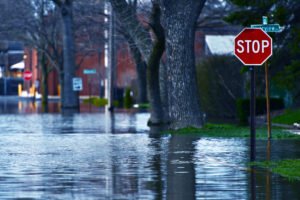New Zealand’s wastewater and stormwater infrastructure have asset values well over $20 billion, but much of it was not designed to withstand the challenges climate change will bring, from sea level rise to the predicted changes in rainfall frequency and intensity.
 A new report from the Deep South National Science Challenge and Motu Economic and Policy Research highlights these infrastructure issues and that adaptation could require significant and expensive changes to stormwater and wastewater networks.
A new report from the Deep South National Science Challenge and Motu Economic and Policy Research highlights these infrastructure issues and that adaptation could require significant and expensive changes to stormwater and wastewater networks.
The recent Edgecumbe floods sent raw sewage floating through the streets, with some 500 houses still unliveable six months later. An increase in extreme rainfall events will add stress to the system by overwhelming the networks, said Waikato University’s Professor Iain White, a co-author on the report.
“It’s not just too much water, though,” he said. “Drought brings its own problems, disrupting gravity systems by slowing flow and leading to blocked pipes. Particularly lengthy droughts can also affect wastewater treatment processes, creating functional and safety concerns.”
The Challenge plans to do more research in this area to better understand the risks and consider options for adaptation.
The report was covered by local media, including:
Stuff.co.nz: Country’s water infrastructure can’t handle strain of climate change, report finds
NZ Herald: Stormwater systems vulnerable to effects of climate change
TVNZ: New research says NZ could be in with billion dollar bill to replace pipes affected by climate change
NBR: NZ city infrastructure won’t cope with climate change, NIWA report [paywall]
Newshub: Climate change will hammer New Zealand’s drainage systems
The Spinoff: Imagine Edgecumbe, but far more often: Climate-proofing our valuable water infrastructure